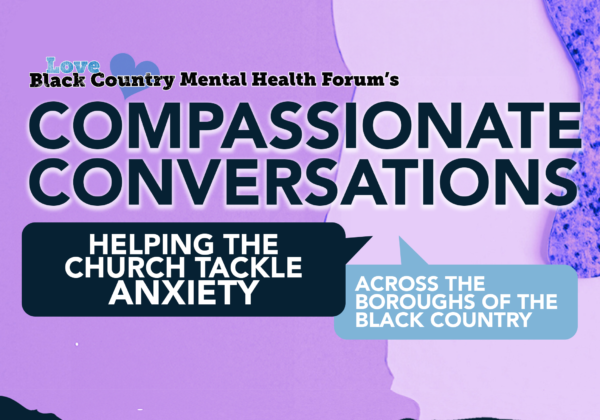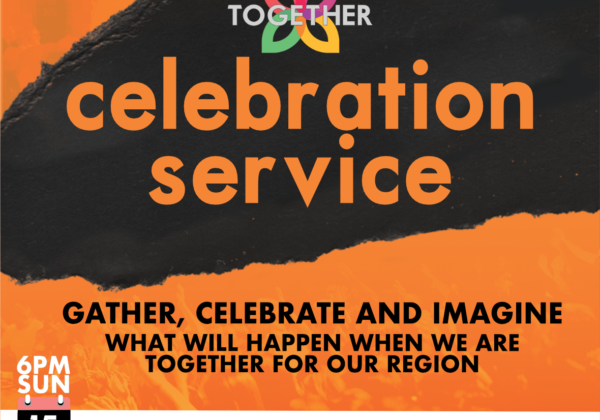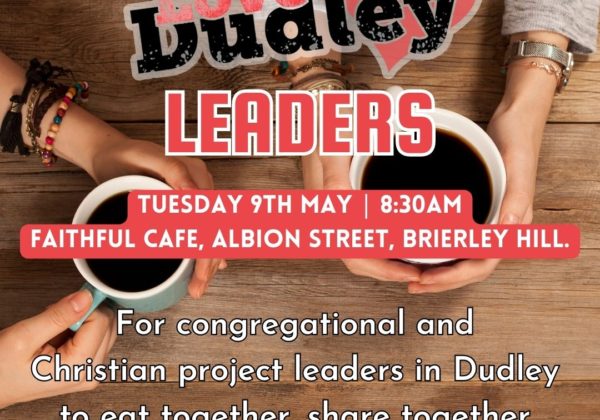
Housing the vulnerable in Dudley
The kids were screaming, all three of them. Their mother ran into the room to try to identify the source of the commotion and as soon as she did, the problem became obvious. Her five year-old son had somehow managed to find a cigarette lighter in their tiny flat and had set fire to a small teddy bear in the corner of the room. The fire had now spread to the curtains, causing the children to react. Their mother managed to put the fire out and then turned her attention to the small boy. Stooping down to his level, she held him firmly by the shoulders.
“What do you think you’re doing? You must never play with fire!”
What happened next seemed to take everyone by surprise. The young boy looked at his mother, her head still inches from his and swung his fist firmly into the centre of her face. As her nose burst open and blood gushed down her chin, her other two children screamed in shock and her stunned son ran out of the open door.
Hearing the noise and witnessing the boy’s escape, a neighbouring woman ran into their flat. Assuring their mother that she would watch her two girls, she encouraged her to go and find her son.
It didn’t take long. The sound of his tears gave away his hiding place, behind a tree in the car park outside. The boy was distraught and sobbed into his mother’s arms as she held him tightly, fresh blood still dripping down her face.
“I’m so sorry Mommy,” he cried. “I don’t want to be a man that hits ladies.”
Domestic violence affects everyone in a family, not just the physical victim. When children witness their family members abusing each other, the confusion it brings to their vulnerable little minds can be catastrophic. According to a 2006 UNICEF report, research suggests that the single best predictor of children becoming either perpetrators or victims of domestic violence later in life is whether or not they grow up in a home where there is domestic violence.[1]
It’s a dismally wet and cold November morning and I’m sat in a building in the heart of Dudley, listening incredulously to story after story like the one above. When I first met Anna Gillespie, CEO of CHADD (Churches Housing Association of Dudley and District) at the Bishop of Dudley’s house in Halesowen a few weeks earlier, I would never have expected that the visit I arranged to see the work of CHADD would reveal such tragic stories. I think I just expected to hear admirable accounts of how they’d helped impoverished families find affordable housing, which is what their name implies they do.
My preconceptions couldn’t have been further from the truth.
The case study above is a true story that happened in a CHADD refuge centre only a few months ago. There’s no need for dramatic licence when it comes to front-line work with victims of domestic violence.
“These are the types of people CHADD works with on a daily basis,” explains Anna, as we sit in her small office in Dudley, listening to the rain lash against the windows. “We offer safe housing and support to women and men who have fled violent partners, often bringing their children with them.”
The needs of these people are complex and desperate but as I sit and listen to Anna talk, I’m thrilled that there is a Christian-rooted organisation in Dudley that is fully equipped to meet them. Started 37 years ago by the Church of England Diocese in Dudley, CHADD was originally founded as a halfway house for offenders leaving prison with nowhere to go. This small outreach has now grown into a multi-million pound operation, with 75 employed staff reaching out to 650 people each year across the Dudley borough in a variety of ways.
Domestic Abuse
CHADD’s primary service involves reaching out to victims of domestic abuse. Through the running of an impressive, newly built women’s refuge centre in Dudley, alongside varied outreach work, CHADD was able to offer support to 400 victims of domestic abuse last year. Many are women fleeing violent partners, often with their children. CHADD’s women’s refuge is able to offer these women safe and warm accommodation, with a laundry room, crèche, teenager’s games room and TV room as well as a team of professionals who work in partnership with CHADD to help support their residents.
“The women’s refuge is our pride and joy,” explains Anna as she shows me around.
It’s easy to see why.
It looks nothing like what I pictured a women’s refuge to be like. It is warm, bright, spotlessly clean and well-equipped, not only with the mod-cons most people are used to these days, but also with loving and compassionate staff who are committed to providing an environment in which some of society’s most vulnerable and traumatised women and children will want to stay.
“If we can create a place where these women want to stop, they wont feel like they have to return themselves and their children to an abusive relationship.”
Alongside providing safe-housing, CHADD helps victims of domestic abuse in a number of ways. Many women and children arrive at the refuge with nothing but the clothes on their back. CHADD is able to provide clothing, food, bedding, toys and toiletries thanks to kind donations from local Churches and community groups. Since the average length of stay at the refuge is 7-8 months, therapeutic work and counselling is undertaken with any children that arrive with their mothers, helping them to come to terms with the horrors they have often witnessed before their arrival in the refuge. Support is offered to help women link with Independent Domestic Violence Advisors (IDVAs) in order to press charges against their abusers. For the 70% of women who do not want to pursue legal action but simply want to disappear, CHADD helps them to be rehoused in other parts of the country.
“This is what we were able to do for Joanna[2]” explains Anna. “Joanna lived on a rural smallholding with her husband and a small handful of animals, whom she adored. Her husband was regularly violently abusive towards her. She feared that if she left him, he would kill her animals in an act of revenge, just as he’d threatened to kill her. When she finally plucked up the courage to leave, she contacted CHADD and we were able to send transport for her horse, sheep and dog and have them rehoused temporarily while she stayed with us and received the support and therapy she so desperately needed for a year. When she finally moved away to a new house we were able to help her find in the south of the country, the animals were returned to her and her life was able to start again, free from fear and abuse.”
Other Victims
As the morning passes, Anna shares story after story of tragedy that CHADD have been able to help with. I’m shocked by some of the things I learn, many of them challenging my own stereotypical preconceptions of victims of domestic abuse.
Firstly, many victims are elderly. CHADD has recently received £14,000 from the Police and Crime Commissioner as part of the ‘Never Too Late Project’ to provide a specialist flat, offering refuge to elderly people who are suffering domestic abuse but who may find it difficult living in a refuge with younger women and children.
Secondly, some are victims of abuse from their children. Last year, CHADD worked with a couple whose teenage son was being highly abusive towards them. On more than one occasion he had threatened their lives. CHADD were able to house them in a satellite flat in another part of the Dudley borough so that they could escape the violence but remain together as a couple.
Finally, whilst the majority of victims of domestic abuse are women and children, CHADD also works with male victims. One such man is Colin, who has been married to his wife for forty years. She is an alcoholic and when she relapses, becomes verbally and physically abusive towards her husband. When this happens, Colin books himself into a hotel and calls the CHADD outreach team who are able to check he’s safe and offer him advice and support.
Foyer Service
In addition to supporting victims of domestic abuse, CHADD also runs a Sheltered Housing scheme of 95 warden supported flats for older people, creating a sense of community amongst otherwise very lonely old people. CHADD also runs St Mark’s House in Lye, which offers residential support with 24-hour care to 16 residents suffering mental health problems, helping them to become more independent whilst supporting them in their needs.
However, CHADD’s second largest area of work involves operating a Foyer Service in central Dudley for 16-25 year olds. The Foyer provides supported housing for 30 young people who would otherwise be homeless. Their backgrounds and stories vary, but almost all of them are care leavers, young offenders or refugees with nowhere else to go. CHADD’s Foyer offers these young people the care and support they need to enter education and training as well as teaching them basic life and social skills to help them become active members of society.
“The young people we work with are from chaotic and complicated backgrounds and each have complex needs and issues,” explains Anna, the compassion in her tone obvious. “At one time in their lives, nearly all of them have either engaged in or witnessed drug abuse, self-harming and eating disorders, amongst other difficult problems. Their emotional needs are unpredictable and they require stability and support on a daily basis. Our Foyer staff and support workers provide just that, making sure each young person is engaging in education or training placements, supporting them with career guidance and playing the role of ‘mum or dad’ by contacting their college tutors or employers and making sure they are engaged in their work.”
As Anna and her Foyer Service staff show me around the facility, I am humbled again by their obvious, almost paternal pride of their residents. Story after story unfolds of young people who had defied all the odds and found a loving community and a place to call home amongst their peers and support workers at the Foyer. Two of the current residents recently started university degree courses, an incredible achievement in light of the fact that nationally only 6% of UK care leavers enrol in higher education each year. In fact, 28 of the 30 residents are all currently in Education, Employment or Training; an impressive statistic that bears witness to the impact of what the care and support of loving adults can have on a young person’s life.
Kingdom Values
After she has explained to me about the practicalities of all of the work CHADD does, Anna emphasises her final statement.
“We work closely with Rev. Joanna Anderson, who works with our tenants on a weekly basis, offering chaplaincy support to any resident who wants it. It’s my dream for CHADD to return more and more to its roots of Kingdom values.”
These were the words I found myself reflecting on as I drove away from CHADD that morning.
If you type “state of the UK Church” into google on any given day, you’ll inevitably be met with a vast array of dismal statistics and depressing stories of decline. Whilst that may be true for traditional church attendance, what I have witnessed in The Black Country this year bears testimony to the fact that there is a growing movement of hidden kingdom activity in our region. Faithful charities and organisations who are reaching out to people living in the pit of despair and offering them hope, love and life. These are values of the Kingdom of God and they are quietly trickling through the darkest backstreets of our four boroughs in the form of passionate, humble and courageous men and women of God, obeying their King and loving some of society’s most broken people.
My prayer for Anna, CHADD and all of the organisations and people serving our region is this: I pray that despite their humility, they are able to recognise the holy ground on which they stand. Every time they reach out to a broken, hungry, wounded and impoverished person, they actually reach out to Jesus Himself (Matthew 25:31-46).
What an honour. What a calling.
If you’d like to support the work of CHADD, donations are always welcome in the form of clothing, toys, toiletries, bedding and household goods. Please click here to contact CHADD for more information on how to donate.
[1] Behind Closed Doors: The Impact of Domestic Violence on Children, (2006), Unicef: New York. Available at: https://www.unicef.org/media/files/BehindClosedDoors.pdf
[2] All names have been changed to protect identities.
Related posts
 COMPASSIONATE CONVERSATIONS, a session from The Black Country Mental Health Forum’s - The Black Country Mental Health Forum, who brought us together last November for the Sanctuary Conference, are taking information on anxiety and mental health out to the boroughs of the Black Country. Compassionate Conversations – Helping The Church Tackle Anxiety is a chance for Christians to explore how we can support people living or suffering […]
COMPASSIONATE CONVERSATIONS, a session from The Black Country Mental Health Forum’s - The Black Country Mental Health Forum, who brought us together last November for the Sanctuary Conference, are taking information on anxiety and mental health out to the boroughs of the Black Country. Compassionate Conversations – Helping The Church Tackle Anxiety is a chance for Christians to explore how we can support people living or suffering […] Together Celebration Service – 15.10.23 - On Sunday 15th October, we are gathering Christians from across the Black Country to celebrate and worship God together and be inspired for the future.
Together Celebration Service – 15.10.23 - On Sunday 15th October, we are gathering Christians from across the Black Country to celebrate and worship God together and be inspired for the future. 200+ young people cry out to Jesus - Falling on their knees: 200+ young people joined together on Friday night for... a prayer meeting!
200+ young people cry out to Jesus - Falling on their knees: 200+ young people joined together on Friday night for... a prayer meeting! Love Dudley Leaders - Congregational and Christian project leaders will be gathering for their regular monthly Love Dudley Leaders gathering on Tuesday 9th May, 8:30am at Faithful Cafe, Albion Street, Brierley Hill.
Love Dudley Leaders - Congregational and Christian project leaders will be gathering for their regular monthly Love Dudley Leaders gathering on Tuesday 9th May, 8:30am at Faithful Cafe, Albion Street, Brierley Hill. Love Dudley hosts The Liberator - Churches across Dudley are partnering together through the Love Dudley network to host The Liberator, with Saltmine Theatre Company.
Love Dudley hosts The Liberator - Churches across Dudley are partnering together through the Love Dudley network to host The Liberator, with Saltmine Theatre Company. 